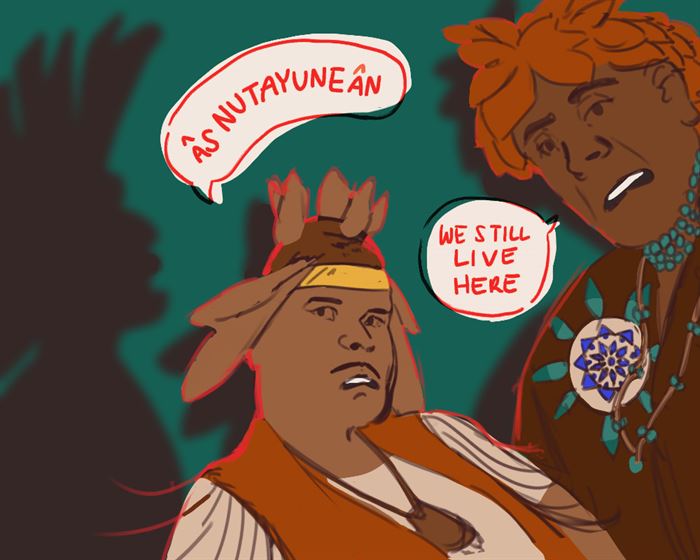Turkey, stuffing, mashed potatoes, pumpkin pie. It’s all we can think about until November 24th, the American holiday that is Thanksgiving this year.
We learn about the history of Thanksgiving all the way back in Kindergarten. We make hand-traced turkeys and draw on color book pages of a cornucopia and assume that the pilgrims and Native Americans lived happily ever after together. However, once we grew up, we learned that this is certainly not the case.
But due to the fact it is so engraved in our brains, we have a hard time accepting the harsh truth of our ancestors and what they did to the people who were here before us. Many Americans don’t want to admit the country’s fault in instances like the mistreatment of Native Americans, the Japanese internment camps from 1942-1945, and many other examples of racism and oppression.
Americans don’t like to think of America as a nation that has committed horrid crimes against humanity like the people we learn about in history books, but we have committed horrible crimes and we have to talk about it.
To start things off, let’s talk about the myth of the first Thanksgiving. We are taught to believe that the pilgrims landed on Plymouth Rock and were greeted by the Native Americans who invited them to a feast that lasted days. However, author and George Washington University professor David Silverman claims in his book “This Land Is Their Land: The Wampanoag Indians, Plymouth Colony, and the Troubled History of Thanksgiving”, that “much of that story is a myth riddled with historical inaccuracies.”
Smithsonian Magazine continues by saying “beyond that, Silverman argues that the telling and retelling of these falsehoods is deeply harmful to the Wampanoag Indians whose lives and society were forever damaged after the English arrived in Plymouth.”
They did still have a peaceful feast together, but that was more of a way to ensure the protection of the Wampanoag tribe from the English. The Wampanoag tribe was even the one to suggest a friendly relationship, but it wasn’t long until the English betrayed them.
Ever since the pilgrims landed in America, Native Americans were met with diseases, bloodshed, genocide, and continued oppression for hundreds of years to come.
Smithsonian Magazine states, “Wampanoags today remember the Pilgrims’ entry to their homeland as a day of deep mourning, rather than a moment of giving thanks.”
Silverman even sat down with people in the Wampanoag tribe today and they agreed with his statements on Thanksgiving. Silverman stated, “They felt like their people’s history as they understood it was being misrepresented. They felt that not only their classes, but society in general was making light of historical trauma which weighs around their neck like a millstone. Those stories really resonated with me.”
One of the more hidden truths about Thanksgiving is the fact that the Wampanoag tribe had contact with the English for many years prior. When the pilgrims arrived, a few of the people in the tribe had already learned to speak English.
Lindsay Mcvay for the Smithsonian Magazine reports that “about four years before the Pilgrims anchored off Massachusetts, British fishermen had already started making their way through New England, storming through [Native American] towns to kidnap Native people for profit in the slavery trade.”
Native Americans did not befriend the colonizers and concede their land. It was violently stolen from them and we are taught so little about that until maybe high school or later. Even then, we still aren’t taught as much as we should be.
The pilgrims coming to America meant a whole new world for some people. It was full of promise and new opportunities. Still, we have to remember the people whose lives were stolen and the people that suffered for no reason other than the English’s greed and inhumanity.
If you choose to celebrate Thanksgiving this year, please do so in honor and remembrance of the lives that were taken and the people who suffered for us to be here.



